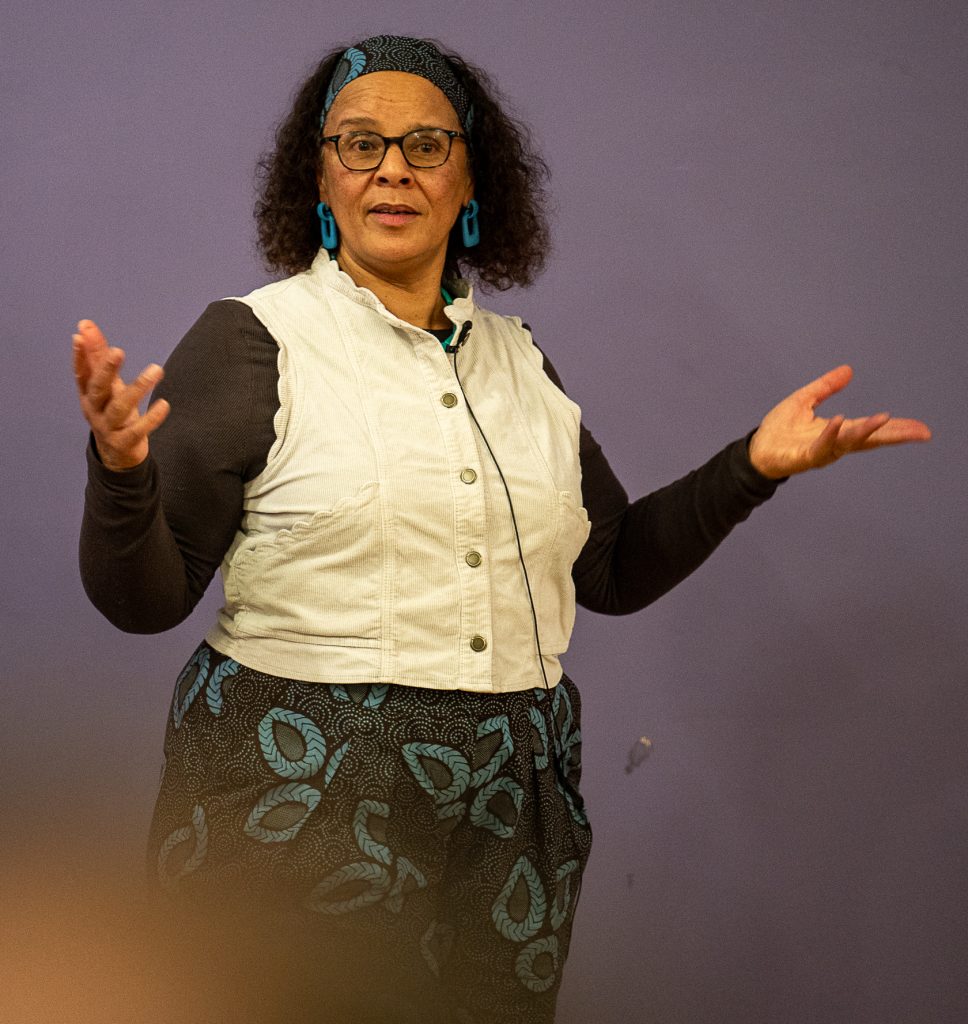
A review of the talk by member Croy Thomson
At one point, Helen Minnis confided in us her alternative title for this talk: “Life’s a bitch and then you THRIVE”. Not the language one associates with these events, but it does neatly encapsulate the idea. And it got a good laugh.
But who needs gimmicks when you have imaginative imagery and classic storytelling skill? Professor Minnis adroitly led us through the all-too human experience of trauma and disasters, and how we cope with them. Or not. Topical humour leavened the hour, for example having a go at the freshly re-elected President of America: “Some disasters are more difficult to deal with than others”.
As Professor Minnis revealed, we human beings have evolved to ride out many different forms of disaster: Biblical plagues of frogs, boils and locusts; wars; famines and floods; more wars; injuries and diseases; watching Andy Murray play Grand Slam Finals (okay, that’s just my wee own trauma, but as Einstein said, “It’s all relative”).
Instant response technology came into play. On our mobiles we literally tapped into an on-the-spot survey and saw the responses configure on the auditorium screens. To the request, “Using no more than three words, what does trauma mean to you?”. The words appeared. “Pain” featured strongly, as well as “Depression”, “Shock” and Distress”.
Do we need to embrace trauma to become more resilient?
In leading us to the nub – “We are made to withstand terrible things” – the Professor also deployed more traditional visual aids, to good effect. I mean, who can resist a technical drawing of an exploded view of a 1972 MG Midget motor car’s shock absorber system? Then there was the helpful Stress Thermometer graphic, and a medieval illustration of locusts (see? Plagues are nothing new), and a YouTube video of a yurt being built in England (two people required) versus the same challenge in Kurdistan (at least eight people involved). This last visual was put to an interactive online survey and up popped, “De-individualisation”, “Community”, “Friends” and “Community”.
Off to Tanzania we went. The Hadza tribe are descendants of the country’s aboriginal hunter-gatherer population, and in millennia have known little change to their way of life. We learned what Hazda children can teach the so-called developed world about resilience in the face of trauma.
Ancient Egypt next: corpses at feasts, anyone? Hey, it reminds you that you are alive … for now.
We were asked, “Do we need to embrace trauma to become more resilient?” The audience replied, “Yes”. By this stage the next question was rhetorical: “Are the industrialised states, with their psychiatrists, psychologists, nutritionists and counsellors, actually the under-developed states?”
Audience questions were fielded with disarming positivity. “That’s a great question!” was said more than once, with feeling. Questions touched on when therapy can be harmful; how poorer and middle-class communities differ in their response to stress; dangers of relying on purely medical solutions; the differences between siblings in ability to cope with trauma (here the Chair quipped, “Nature always spreads its bets”).
The talk was delivered five days before the 80th anniversary of the liberation of Auschwitz. Holocaust survivors have gone on to lead fulfilling lives, proving there exists a deep seam of resilience in the human spirit. I recommend viewing this lecture as a way of better mining that seam.
Helen Minnis is Professor of Child & Adolescent Psychiatry at the University of Glasgow. Her talk was chaired, introduced and outroduced by Professor Graham Watt, who presented her with a Society paperweight. The lecture will be available online from 20th March.
Biography

Helen Minnis is Professor of Child and Adolescent Psychiatry at the University of Glasgow. She has spent most of her career investigating the mental health problems surrounding abuse and neglect. Now, working in partnership with people who have experienced trauma in early life, she is a lot about resilience.
